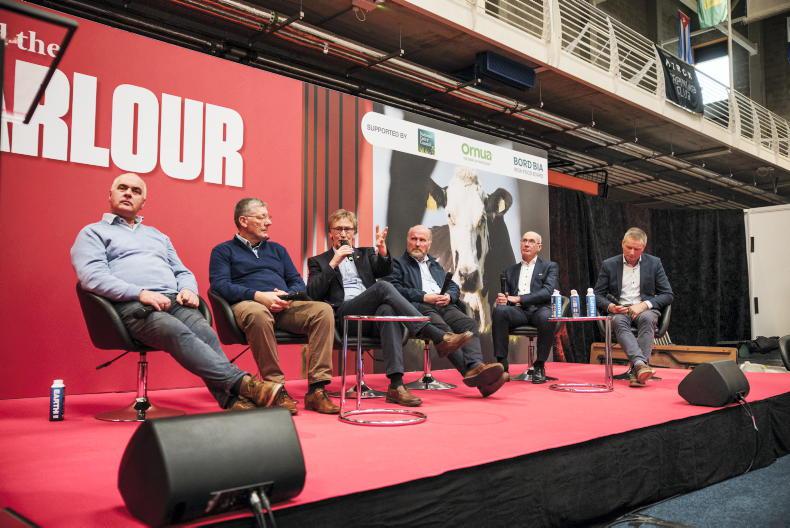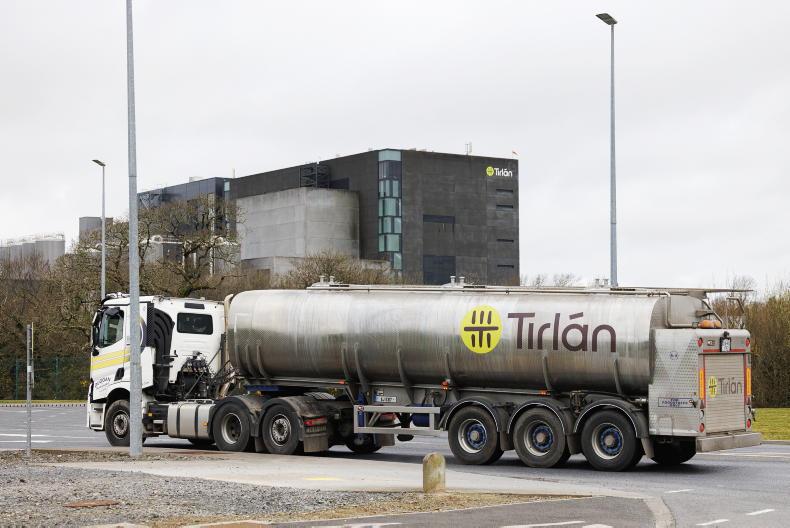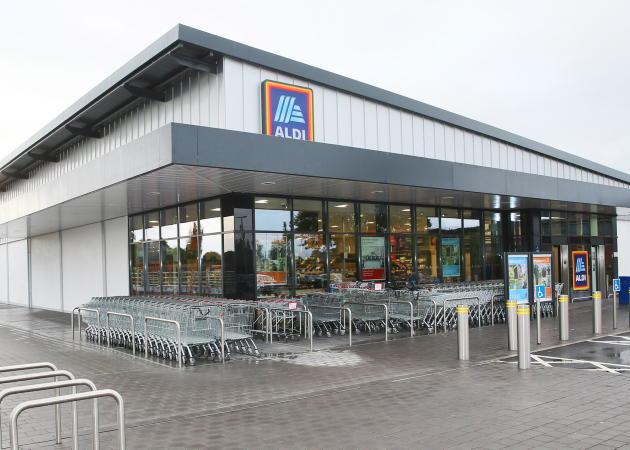Arrabawn Co-op in Kilconnell, Ballinasloe, Co Galway, has been convicted and fined for breaches of food law at a sitting of Ballinasloe District Court.
The co-op was investigated by the Food Safety Authority of Ireland (FSAI) in conjunction with the Department of Agriculture, following a contamination incident.
The court on Thursday convicted and fined Arrabawn Co-operative Society Limited €40,000 for breaching food law. The company also agreed to pay the FSAI’s legal costs and a contribution to the investigation costs.
A former quality manager for the company was also convicted and fined €6,500.
The case was brought by the FSAI after receipt of a protected disclosure in August 2020, which resulted in an investigation led by the FSAI.
The investigation found that documents had been illegally forged or altered and that these documents were then provided to business customers, third-party auditors and to FSAI and DAFM authorised officers.
Breaches
The breaches of food law of which Arrabawn Co-operative Society Limited pleaded guilty included:
Two charges of possession of forged or altered documents relating to testing of pasteurised milk.Possession of forged documents relating to testing and calibration records.Possession of forged documents relating to packaging integrity and water treatment.Failing to ensure that food handlers were adequately supervised and instructed and/or trained in food hygiene matters.Two charges of failing to comply with microbiological criteria for Enterobacteriaceae in pasteurised milk.Supplying inaccurate information concerning the folic acid content of milk.FSAI CEO Dr Pamela Byrne said that the court decision reinforces the legal obligation that all food businesses must abide by food law, which are in place to protect consumers’ health and interests.
The law requires that food businesses must provide accurate documentation in relation to the food safety practices in their business and that their teams are properly trained and adequately supervised.
Customers must have confidence in their food suppliers, certain in the knowledge that the food they are purchasing is safe and trustworthy.
Product recall
At the time of the product recall when senior management at Arrabawn found out about the breach they acted immediately and management at the Kilconnell plant were subsequently changed.
As a result of the breach, Arrabawn lost liquid milk contracts with some of the major retailers.
Arrabawn Co-op is primarily a dairy processing business, employing 400 people, with circa 980 milk suppliers headquartered in Nenagh, Co Tipperary. The milk catchment area spreads from north Tipperary into Galway and Offaly. However, milk collection stretches to 15 counties.
Part of the Arrabawn business is a liquid milk business, but volumes going into liquid milk have trended downwards over the last five years and proportionally the volume in liquid milk is now just 12% of all milk processed. In 2020, the Arrabawn liquid business had a difficult year.
Financials improving
Accounts for Arrabawn for 2020 were better than 2019, with total revenue up to €278m and operating profit up to €2.68m from €1.04m. Total milk processed was up to 450m litres from 422m.
The Irish liquid milk business is not getting any better and, once again, this dragged on the Arrabawn business in 2020. Arrabawn Co-op pulled out of the KPMG/IFJ milk price review exercise, as it wanted to include milk sales to liquid suppliers in the manufacturing milk price review.
When contacted for a statement by the Irish Farmers Journal, Arrabawn Dairies said:
“Arrabawn Co-op fully accepts the charges brought against it by the Food Safety Authority at Ballinasloe District Court in relation to issues arising last year at its Arrabawn Dairies’ division processing site in Kilconnell, Co Galway.
"Although there was no risk to food safety and public health arising from the breaches, the company deeply regrets these matters and has responded accordingly. It has instituted significant organisational change at the plant through:
Changes in the management structure. Enhanced controls following in-depth review of the food safety management system.Large-scale investment in technology, processes and procedures.Improved governance arrangements to enhance oversight.Comprehensive retraining programmes on all aspects of food safety.Collaboration with industry food safety experts to ensure best practice is implemented and reviewed."As stated at the hearing, the Department of Agriculture, Food and the Marine has conducted numerous onsite inspections since the enhanced measures were put in place and is satisfied that matters are now in order.”
Arrabawn Co-op in Kilconnell, Ballinasloe, Co Galway, has been convicted and fined for breaches of food law at a sitting of Ballinasloe District Court.
The co-op was investigated by the Food Safety Authority of Ireland (FSAI) in conjunction with the Department of Agriculture, following a contamination incident.
The court on Thursday convicted and fined Arrabawn Co-operative Society Limited €40,000 for breaching food law. The company also agreed to pay the FSAI’s legal costs and a contribution to the investigation costs.
A former quality manager for the company was also convicted and fined €6,500.
The case was brought by the FSAI after receipt of a protected disclosure in August 2020, which resulted in an investigation led by the FSAI.
The investigation found that documents had been illegally forged or altered and that these documents were then provided to business customers, third-party auditors and to FSAI and DAFM authorised officers.
Breaches
The breaches of food law of which Arrabawn Co-operative Society Limited pleaded guilty included:
Two charges of possession of forged or altered documents relating to testing of pasteurised milk.Possession of forged documents relating to testing and calibration records.Possession of forged documents relating to packaging integrity and water treatment.Failing to ensure that food handlers were adequately supervised and instructed and/or trained in food hygiene matters.Two charges of failing to comply with microbiological criteria for Enterobacteriaceae in pasteurised milk.Supplying inaccurate information concerning the folic acid content of milk.FSAI CEO Dr Pamela Byrne said that the court decision reinforces the legal obligation that all food businesses must abide by food law, which are in place to protect consumers’ health and interests.
The law requires that food businesses must provide accurate documentation in relation to the food safety practices in their business and that their teams are properly trained and adequately supervised.
Customers must have confidence in their food suppliers, certain in the knowledge that the food they are purchasing is safe and trustworthy.
Product recall
At the time of the product recall when senior management at Arrabawn found out about the breach they acted immediately and management at the Kilconnell plant were subsequently changed.
As a result of the breach, Arrabawn lost liquid milk contracts with some of the major retailers.
Arrabawn Co-op is primarily a dairy processing business, employing 400 people, with circa 980 milk suppliers headquartered in Nenagh, Co Tipperary. The milk catchment area spreads from north Tipperary into Galway and Offaly. However, milk collection stretches to 15 counties.
Part of the Arrabawn business is a liquid milk business, but volumes going into liquid milk have trended downwards over the last five years and proportionally the volume in liquid milk is now just 12% of all milk processed. In 2020, the Arrabawn liquid business had a difficult year.
Financials improving
Accounts for Arrabawn for 2020 were better than 2019, with total revenue up to €278m and operating profit up to €2.68m from €1.04m. Total milk processed was up to 450m litres from 422m.
The Irish liquid milk business is not getting any better and, once again, this dragged on the Arrabawn business in 2020. Arrabawn Co-op pulled out of the KPMG/IFJ milk price review exercise, as it wanted to include milk sales to liquid suppliers in the manufacturing milk price review.
When contacted for a statement by the Irish Farmers Journal, Arrabawn Dairies said:
“Arrabawn Co-op fully accepts the charges brought against it by the Food Safety Authority at Ballinasloe District Court in relation to issues arising last year at its Arrabawn Dairies’ division processing site in Kilconnell, Co Galway.
"Although there was no risk to food safety and public health arising from the breaches, the company deeply regrets these matters and has responded accordingly. It has instituted significant organisational change at the plant through:
Changes in the management structure. Enhanced controls following in-depth review of the food safety management system.Large-scale investment in technology, processes and procedures.Improved governance arrangements to enhance oversight.Comprehensive retraining programmes on all aspects of food safety.Collaboration with industry food safety experts to ensure best practice is implemented and reviewed."As stated at the hearing, the Department of Agriculture, Food and the Marine has conducted numerous onsite inspections since the enhanced measures were put in place and is satisfied that matters are now in order.”










SHARING OPTIONS